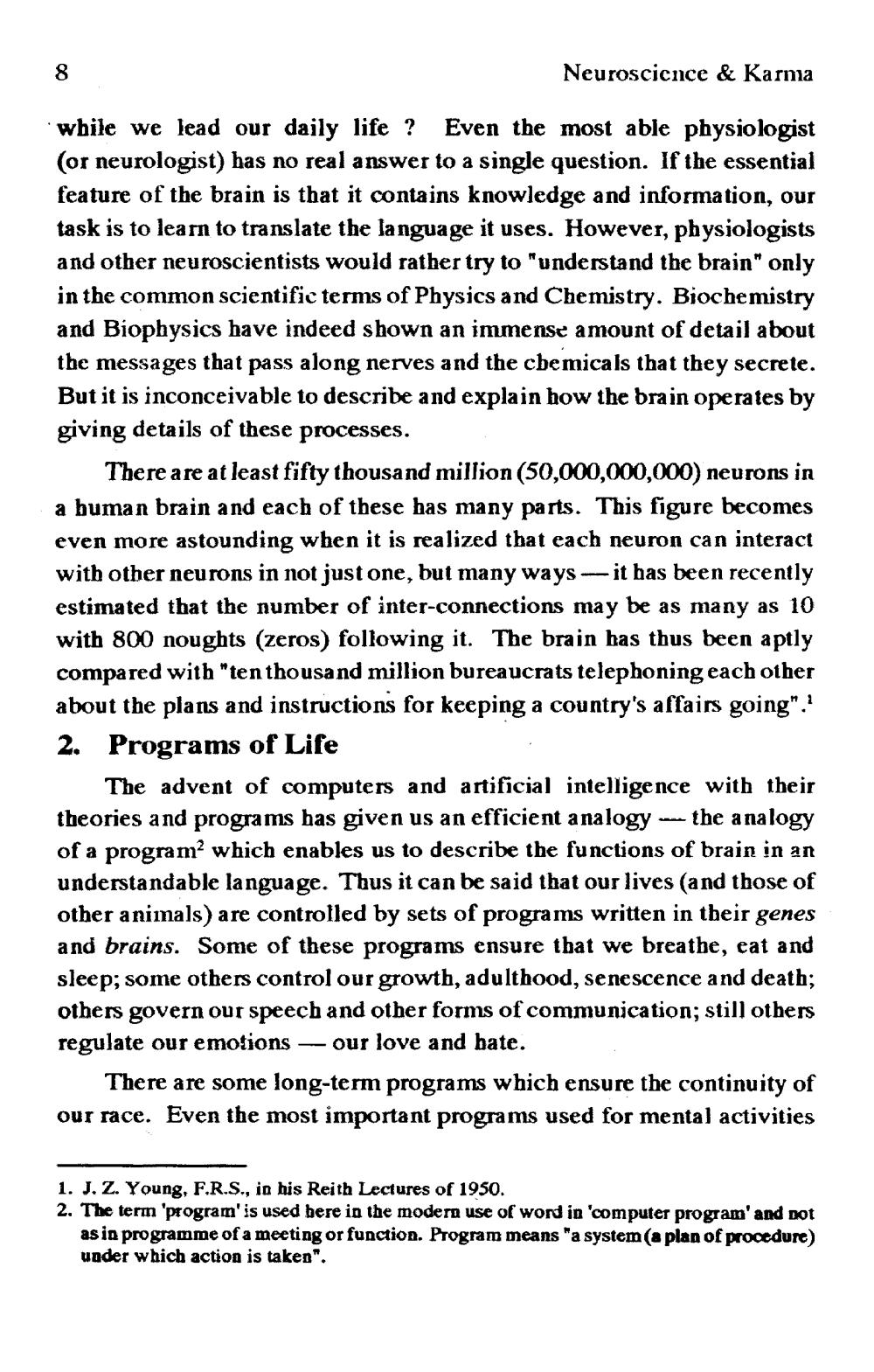________________
Neuroscience & Karma
while we lead our daily life ? Even the most able physiologist (or neurologist) has no real answer to a single question. If the essential feature of the brain is that it contains knowledge and information, our task is to learn to translate the language it uses. However, physiologists and other neuroscientists would rather try to "understand the brain" only in the common scientific terms of Physics and Chemistry. Biochemistry and Biophysics have indeed shown an immense amount of detail about the messages that pass along nerves and the cbemicals that they secrete. But it is inconceivable to describe and explain how the brain operates by giving details of these processes.
There are at least fifty thousand million (50,000,000,000) neurons in a human brain and each of these has many parts. This figure becomes even more astounding when it is realized that each neuron can interact with other neurons in not just one, but many ways - it has been recently estimated that the number of inter-connections may be as many as 10 with 800 noughts (zeros) following it. The brain has thus been aptly compared with "ten thousand million bureaucrats telephoning each other about the plans and instructions for keeping a country's affairs going".! 2. Programs of Life
The advent of computers and artificial intelligence with their theories and programs has given us an efficient analogy - the analogy of a program which enables us to describe the functions of brain in an understandable language. Thus it can be said that our lives (and those of other animals) are controlled by sets of programs written in their genes and brains. Some of these programs ensure that we breathe, eat and sleep; some others control our growth, adulthood, senescence and death; others govern our speech and other forms of communication; still others regulate our emotions -- our love and hate.
There are some long-term programs which ensure the continuity of our race. Even the most important programs used for mental activities
-
1. J. Z. Young, F.R.S., in his Reith Lectures of 1950. 2. The term 'program' is used here in the modern use of word in 'computer program' and not
as in programme of a meeting or function. Program means "a system (a plan of procedure) under which action is taken".




